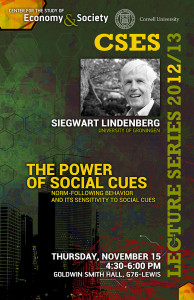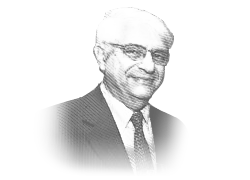Siegwart Lindenberg, Tilburg University
Calibrating competition. The special role of competitive intensity and winner selection rule for cooperation after competing.
- 11:00am - 12:30pm ET
- Online via Zoom
Register here for online access.
Join CSES for a virtual presentation by Siegwart Lindenberg, Professor of Cognitive Sociology at Tilburg University, as he discusses his latest paper, “Calibrating competition. The special role of competitive intensity and winner selection rule for cooperation after competing. An experimental study.”
Abstract
Much has been written about the desirability to combine the advantages of both competition and cooperation (“coopetition”). Yet, there is surprisingly little research on coopetition inside organizations, even though it may be argued that people’s mindset that is relevant for coopetition even between firms is largely formed on the basis of their experience with competition and cooperation inside the organization. How and under what conditions does the experience of competition negatively affect subsequent cooperation and when does it not have this negative influence? We present an experimental test of two competing theories about experiencing competition of different intensities, the subsequent willingness to cooperate, and the moderating role of how winners are selected: a relative deprivation theory (cooperation compromised by the frustration of losers) and a shifting salience theory (cooperation compromised by regimes that make competitiveness salient). The results favor the shifting salience theory. Experiencing moderate competition intensity affects people’s subsequent willingness to cooperate more positively than experiencing fierce competition. Moderate competition intensity works best, especially with selecting winners on the basis of their performance. If fierce competition cannot be avoided, subsequent cooperation is best served by random selection of winners.


